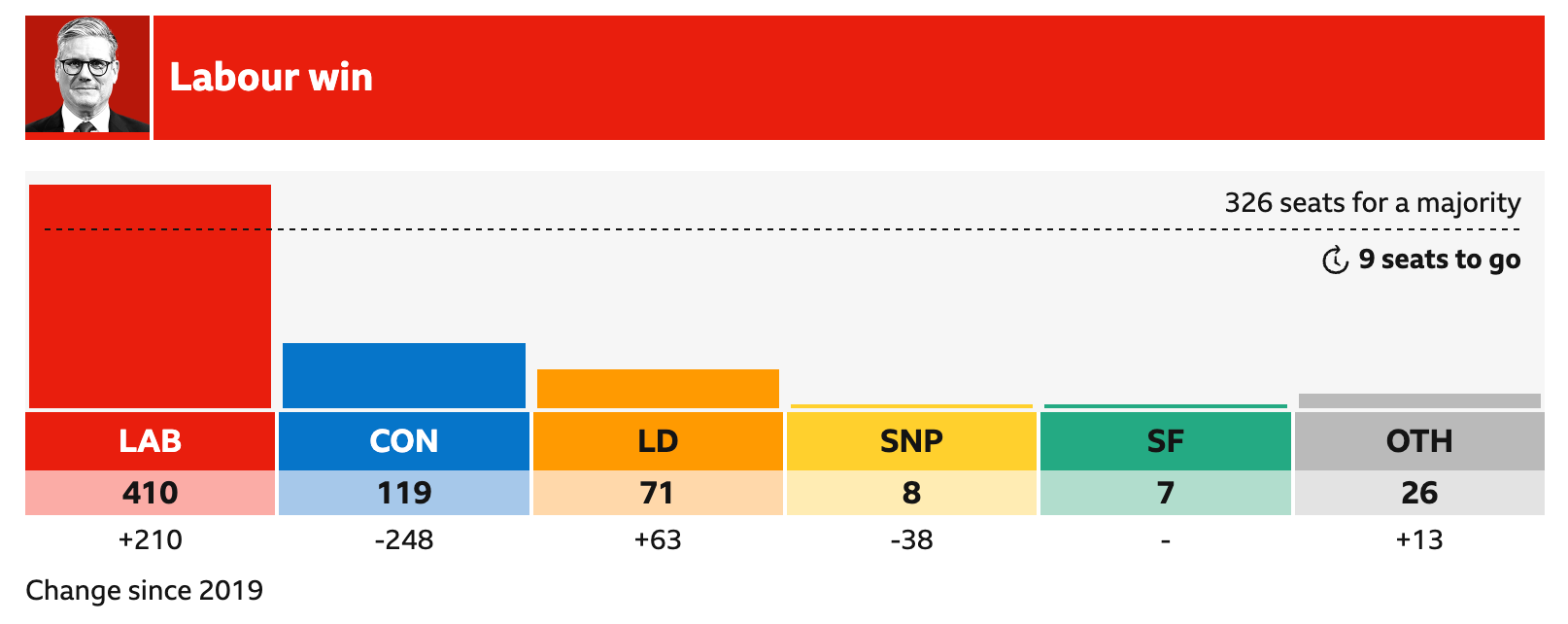Table of Contents
The Labour Party has officially won the UK election, muscling out the Conservatives in a landslide victory, but the general future of crypto on British shores remains largely a mystery.
At the time of writing, Labour has won 410 seats, easily clearing the 326 target for a majority. The Conservative party, which has been at the helm of UK politics since 2010, has dismally only secured 119 seats.

Now that the Tories' reign has come to an end, the crypto industry is looking towards Labour leader, Keir Starmer, for guidance. Sadly for crypto fans, Starmer has remained relatively muted on his crypto stance.
"Digital assets" and "cryptocurrency" are not found in Labour's manifesto, nor were the words muttered in Starmer's campaign, but in a document issued in January titled "Financing Growth" the party stated it planned to "embrace securities tokenization and a central bank digital currency (CBDC)."
"Embracing tokenization could increase liquidity, provide access to new asset classes and fractionalised assets, and strengthen risk management (by reducing counterparty risks and other operational risks)," the document said.
"A future Labour government will therefore look to make the UK a global leader in tokenization."
Additionally, Labour plans to introduce financial market infrastructure regulatory sandboxes "to work out the regulatory bottlenecks for tokenization" and explore the possibility of a "pilot issuance of tokenized gilts via the Debt Management Office to test the impact of the technology and create the demand for tokenized assets."
However, Labour has not mentioned crypto legislation, blockchain, or even established a regulatory framework to safeguard investors.
"To date, Starmer’s stance on crypto remains somewhat nebulous," said deVere Group's Nigel Green. “The cornerstone of establishing the UK as a global crypto hub lies in creating a clear, comprehensive regulatory framework."
“This approach would make the UK an attractive destination for crypto companies looking for a stable and supportive regulatory climate. By investing in blockchain technology and supporting startups, the UK can lead in developing new applications and services in the crypto space."
Green also called for "Government-backed initiatives, such as funding for research and development, tax incentives for blockchain startups, and partnerships with academic institutions" to drive growth in the sector.
In May, the London Stock Exchange approved the first-ever crypto ETPs in Europe, but their debut fell flat.

“For Starmer and Labour, the strategic imperative is clear. By positioning the UK as a global leader in cryptocurrency, they can drive economic growth, create jobs, and nurture innovation.
“The potential benefits extend beyond the crypto sector, enhancing the UK’s overall financial ecosystem and cementing its role as a forward-thinking, dynamic economy.”








